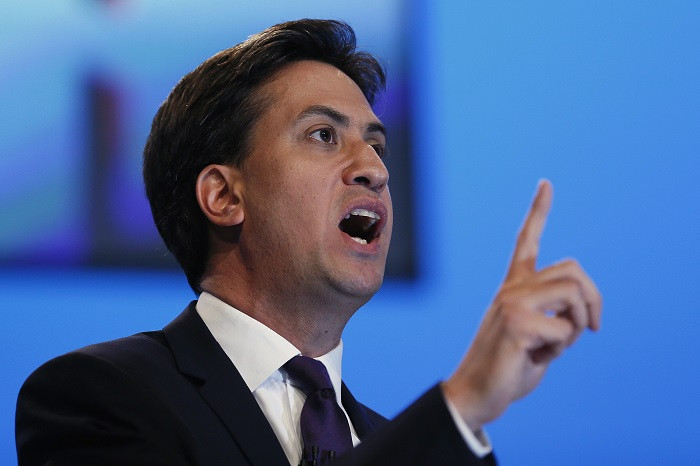Ed Miliband Refuses to Abandon 'Cost of Living Crisis' Agenda

Ed Miliband has moved to end Labour's post-budget wobbles over his economic and political strategy with a clear message he is not about to abandon his "cost of living crisis" assault.
Previewing a keynote speech he will deliver on Tuesday, Miliband goes further, saying the crisis will run through the next parliament, whoever wins the election.
Far from moving on from the message, he insisted the issue represented the "greatest challenge of our age" and repeated his determination to focus on the so-called squeezed middle income earners.
He attacked the government's pledge to seek full employment claiming work was no longer a guarantee of a better standard of living.
"When ministers claim the cost-of-living crisis is over, it serves only to demonstrate they understand neither the reality faced by millions of hard-working people nor the scale of the generational challenge.
"The middle class, once the solid centre of our economy, is being hollowed out with growing insecurity and the prospect, for the first time since the war, that their children will be worse off than they were," he wrote in the Independent newspaper.
The Labour leader's speech comes at a crucial time for him, as his leadership has been coming under greater scrutiny amid claims there are deep divisions between different factions within the shadow cabinet.
On one hand there are those, led by elections coordinator Douglas Alexander, pressing for the cautious, so-called 35% core vote strategy believing that will be enough to win outright victory at the next election.
Others have been echoing the demand for a "bold" new direction which came from Unite boss Len McCluskey last week.
There has been a widespread belief that, while Miliband's energy price freeze coup and cost of living crisis agenda have paid dividends, they have reached the end of their shelf life, particularly in the wake of George Osborne's budget.
And his critics claim they were, in any case, no substitute for a comprehensive alternative economic strategy. As a result there has been pressure on him to map out more of his economic policy before the Tories entirely fence off the area.
That partly explains Miliband's big speech which aims to answer the critics. It looks unlikely to offer any radical new insights into what Labour's economic manifesto might look like, but it will signal a determination to carry on with the cost of living agenda.
Miliband believes the fact that wages are finally starting to outstrip inflation will have a largely statistical effect on people, who will still not feel significant material benefits before the general election.
If that is the case, he clearly believes the question "do you feel better off now than you did in 2010" will still strike a powerful chord with the electorate in 2015.
Polls over the weekend have restored Labour's lead over the Conservatives to an average of 6pc, as the post-Budget bounce for the Tories appeared to dissolve.
© Copyright IBTimes 2025. All rights reserved.





















